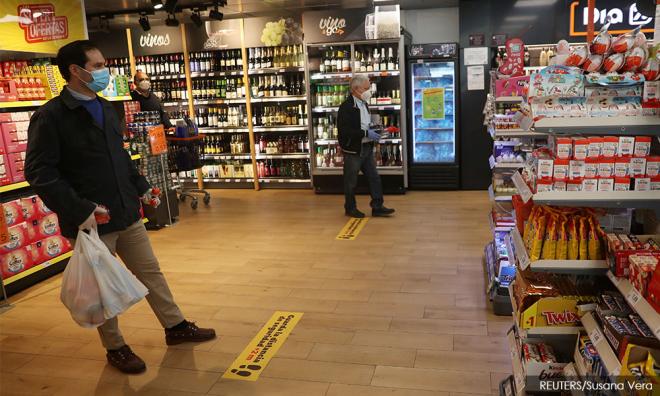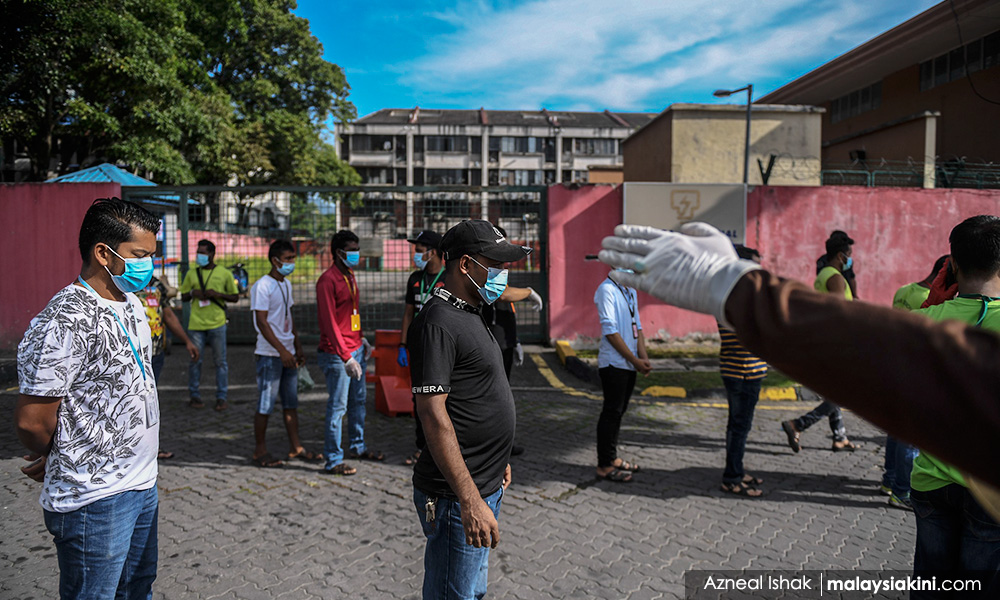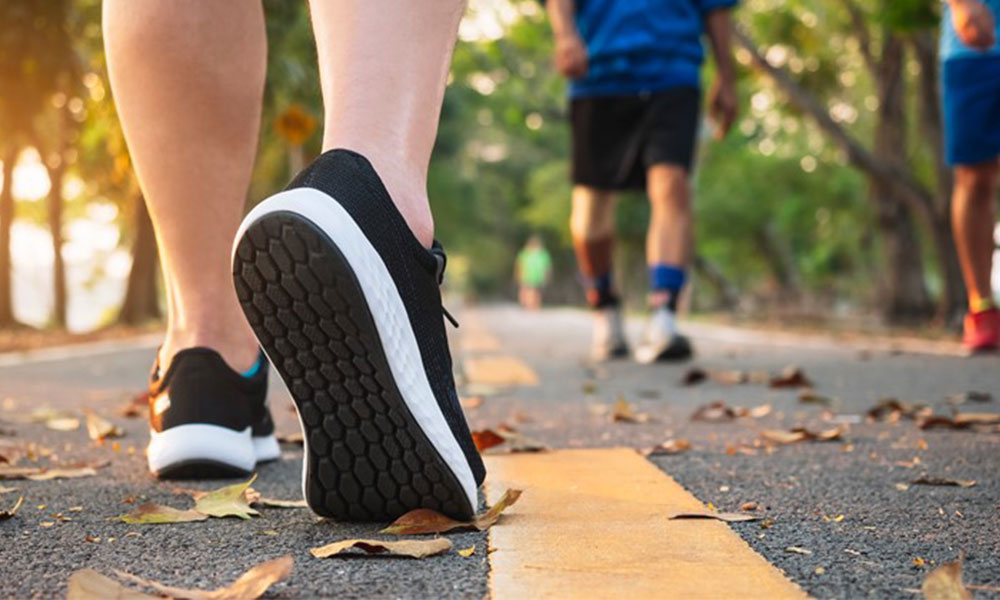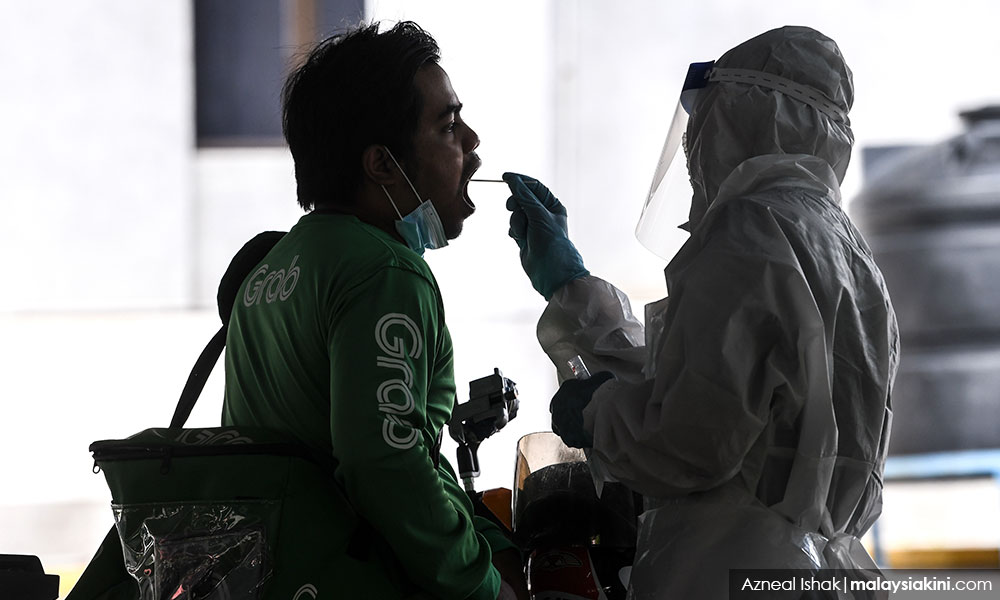
Thank God, we can get outta jail. No, it’s too soon, beware a second Covid wave. These polar opposites sum up how people feel about the MCO being largely lifted on May 4.
Some say that the concerns of businesses trumped over the need for health caution. But it’s a tough call. As long as no cure or vaccine has been found for Covid-19, there is always the risk that just one infected person can spark a new outbreak. Yet, keeping the MCO going indefinitely is not an option either.
How do we balance the costs of massive economic turmoil with saving lives? Is it worth risking 10 lives to save 100,000 jobs? 20 lives? It’s a hard decision. For comparison, 23 out of 100,000 Malaysians die in traffic accidents every year but that does not make us close down our roads.
The economic costs are mounting. Right now, about 500,000 people are unemployed.
The Malaysian Institute of Economic Research (Mier) warned that job losses could go up to 2.4 million if the MCO continues.
Has the curve flattened? New virus cases in the first week of MCO numbered between 110 to 212. For the last week of April, it was between 31 to 94. So yes, the curve has flattened somewhat, but the threat is still lurking.
More worryingly, only 21,271 foreign workers have been tested with 811 found to be infected with Covid-19 as Health Ministry director-general Dr Noor Hisham Abdullah revealed on April 30.
Most of these workers have been living in crowded hostels and probably spread the virus among themselves. As they return to workplaces, will they spread the infection to others?

Let’s not forget that foreign workers were the blind spot that forced Singapore to extend its 'circuit breaker' (lockdown) for an extra month. With an estimated four million foreign workers (about half undocumented), will this be Malaysia’s Achilles' heel?
Let us compare the situation with Italy. They have some 200,000 Covid cases and 27,000 deaths but deemed it safe enough to relax their lockdown (also by May 4) when new daily cases fell to about 300. In comparison, Malaysia has 6,002 cases and 102 deaths as of April 30.
But the Italians are taking a more gradual approach. Manufacturers, construction companies and some wholesalers will be the first to reopen from May 4, followed by retailers two weeks later. Restaurants and bars will get the go-ahead only from early June.
To be frank, our reopening seems a bit rushed. I had expected a more step-by-step approach, say by relaxing the MCO first in green zones while maintaining restrictions in red zones.
To reopen almost everything, including restaurants, is maybe too much and too soon for us. People have been cooped up for six weeks. Will they freak out when given so much freedom suddenly?
For instance, I’m worried about restaurants being allowed to have seated customers. Firstly, the prime minister said tables should be placed two metres apart, okay that sounded good.
But then he mentioned that there could be up to “three or four people per table” (depending on its size) - that seems too close for comfort. Perhaps our eateries can learn from space-constrained Hong Kong, where transparent plastic panels are placed between customers who sit on the same table?
Negative mental well-being
I’ve also always been critical of the MCO's ban on hiking, cycling and jogging while other countries such as Singapore, New Zealand and Britain have allowed it. It seemed to be another knee-jerk reaction of the authorities after large groups of people going hiking and cycling were reported in the early days of MCO. At the very least, we should have allowed solo outdoor exercise to keep people’s spirits up.
After all, Malaysian think-tank The Centre revealed on April 30 that a study of over 1,084 people showed that almost half reported negative mental well-being during the MCO, with 22 percent experiencing “severe” or “extremely severe” anxiety.
But now the pendulum has swung the other way, with people being allowed to go hiking and cycling in groups of up to 10 after May 4. Surely, a more gradual approach - perhaps starting with solo exercise for two weeks - would be better?

Left with mere 'crumbs'
Sadly, the biggest push factor for a faster reopening seems to be based on a survey by The Federation of Malaysian Manufacturers (FMM) where three-quarters of employers felt the government’s wage subsidy was not enough to retain jobs for the next three to six months without pay cuts and retrenchments. As for hotels, even in April, there have been reports of several closing down.
Let’s not forget that small and medium enterprises (SMEs) were left with mere crumbs in the first “Mak Cik Kiah” economic stimulus packages - until they had to raise a ruckus to get extra aid. Even then, the government will only subsidise between 15 percent to 30 percent of salaries (depending on the size of the company) for three months to encourage employers to retain workers. In contrast, the Singapore government will subsidise 75 percent of salaries over three months.
Why has this situation happened? Was it because SMEs are mostly owned by a certain ethnic group and are expected to dig into their own pockets to keep workers on their payroll?
Similarly, it’s a bit of a mystery that food delivery riders were given RM500 each (not that I begrudge them) in stimulus payments when their business is now booming. And civil servants continued to get their full salaries even though many (those not in the frontlines) didn’t even have to work.
Discipline is not a strong trait among Malaysians
When going to banks and supermarkets during the MCO, I’ve found that queues have been orderly and people have largely kept to the “one metre apart” rule. Yet, when visiting a popular hardware store on April 30, I also found impatient customers in long queues squashed up pretty close together (certainly less than one metre). It was as if being closer to the cashier would mean a shorter wait. Either that or they could already sense that freedom was in the air.

I’ve also seen food delivery guys huddled together while they wait for their next orders, their green and purple-pink uniforms seeming to grant them some kind of “immunity”, not from Covid, but from MCO rules.
Discipline is not a strong trait among Malaysians. So, as the prime minister announced, it will be up to the business owners to enforce good practices or face closure.
Finally, on the question of Ramadan bazaars. It has always seemed strange to me, why it was acceptable to take away food from a shop but not a hawker stall? Why the bias towards concrete? Now that people will be allowed to sit down at restaurants, surely people will ask why bazaars for takeaway food remain banned?
Perhaps these should be allowed, provided stalls are spaced, say, five metres apart. And e-orders and pickups should be encouraged with discounts. To further ensure non-crowding, perhaps one-third of the traders can take turns to operate every third day, with Rela on hand to ensure people follow social distancing rules.
All in all, a brave new world awaits us with the relaxation of the MCO on May 4. We can’t just depend on business owners and the government to do everything. We must also be mindful enough to keep practising safeguards. Please don’t do that face mask pulled below the nose trick.
We may also need to stop being such a “shy” society. So if we see people clustered up, let’s be brave enough to remind others - politely, with a half-visible smile - to keep some distance. Or we can always just stand there and start a fake coughing fit.
ANDREW SIA is a journalist who prefers teh tarik kau over tepid English tea. - Mkini


No comments:
Post a Comment
Note: Only a member of this blog may post a comment.